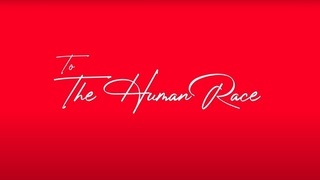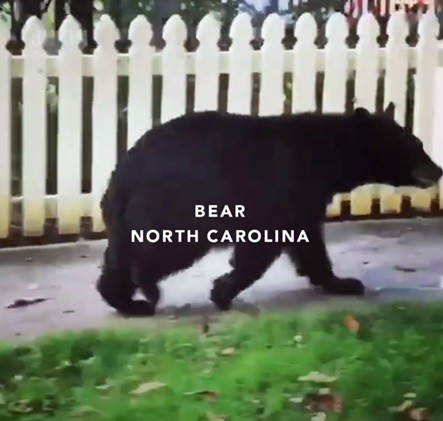4 Stages Every Ad Went Through In 2020

In these challenging times, the words "challenging times" have been spewed at you by Facebook and Burger King until they lost all meaning. It's no secret that brands have responded to COVID like a Terminator trying to stay inconspicuous by cooing at a puppy, but if you look closely you can break the last few months of commercials into distinct phases, each stupider than the last.
"Please Stay Safe And Remember Our Existence"
Our adpocalypse began in mid-March with quick messages, like Jaguar saying "Together, we will get through this" and BMW encouraging viewers to "Stay home and stay safe" because "Today we drive forward without driving at all." While it's difficult to conceive of a person who thought "Well, I wasn't going to stay home and avoid the plague, but if BMW thinks I should take this seriously then I guess I'd better listen," these seemed innocuous enough. Then the floodgates of pretension opened.
Don't Miss
Lockdown may have given people the chance to try new hobbies, but it also curled a finger on a monkey paw for every advertising director who grew up wanting to be the next Truffaut. Finally, an opportunity to say something about the human condition, as reflected through the need to remind people that Google still exists and totally cares about you. Facebook fired the opening fusillade with "We're never lost if we can find each other," which is what the Donner Party told each other before things got awkward.
While the ad neglects to mention that Facebook is now mostly used to find out which of your old high school friends got into QAnon, it helped establish the template of somber piano music, sad footage of empty streets giving way to loved ones touching hands over glass and nurses taking a moment to be wacky, and a closing reminder that inspirational Facebook posts can help soothe the pain. Or warn you that Joe Biden is part of a pedophile Marxist conspiracy to destroy America, one or the other.
From there we got Uber's "Thank You For Not Riding," which is a montage of everyday people all being treated far better than Uber treats their drivers, Hyundai's "Humanity prevails," because Hyundai got a virus confused with the Independence Day aliens, Apple's "Creativity goes on," which reminded us that we can stay in touch with our loved ones thanks to the magic of expensive Apple products, and so many more that YouTuber Microsoft Sam created an exhausting montage that plays like the SNL skit we'll be getting a year from now.
Maybe brands had to say something, but the creative equivalent of releasing every Marvel movie over the span of 10 days didn't remind viewers of humanity's limitless potential to find joy in dire situations so much as they induced a Pavlovian reaction to piano music and the sight of hugging grandparents. All these ads really told us was that, if the bomb had been dropped a generation ago, a week later there would have been an Atari commercial where devastated relief workers picked through the rubble and eventually reclaimed their sense of hope by discovering a Centipede cartridge.
"So How About That Lockdown, Huh?"
As we settled into the routine of lockdown and unprecedented times became plain old precedented, advertising had to switch emotional gears. Deep thoughts on the unity of humanity lost some of their impact after a few weeks of binging Netflix and muddling through terrible Zoom meetings, so ads started encouraging us to look on the bright side of a worldwide plague.
Cadbury declared that "When lockdown is over, all this doesn't need to be over," "this" being basic decency towards other human beings. They're not wrong, but who was Cadbury's prior market? Was there an ad where someone refused to open a door for an old woman laden with groceries because they were busy enjoying a delicious chocolate bar? What grumpy misanthrope decided to look on the bright side of life after Cadbury showed them a family making bread?
In a modest message dubbed "To The Human Race" Coke dubiously declared that "Optimism is more contagious than any contagion," Apple gave us a seven-minute film they're probably going to try to get an Oscar nomination called "The whole working-from-home thing" about how the circumstances every viewer was currently experiencing are indeed wacky but can be made easier with the aid of Apple products, and Jeep connected their upcoming electric vehicle with animal sightings in empty streets. And while I'm not saying that Jeep doesn't think much of their audience, they don't think people know what bears are.

You can see the evolution from "Oh, shit, we have to say something" to "Now is our chance to really say something," but so many brands were telling me to reflect on my current circumstances that Buddhist monks would beg them to dial it back. This second wave of commercials had so little creativity that ESPN, NBC and multiple car brands all used OneRepublic's "Better Days" after some Rhodes Scholar thought "Maybe consumers are looking forward to ... better days?" I'm sure singer Ryan Tedder is a good man, but I have heard so many clips of him warbling "Better daaaaaaaaaaaaaaays" over b-roll of automobiles driving through deserts that, if I ever meet him, I will have a better day by destroying him.
"Actually, We're The Ones Being Awesome"
At this point we began to get soulless aggregate videos like "Top 7 COVID- 19 Commercials," which praised a McDonald's ad for " a sense of comfort for many people." If you've ever sought comfort from a McDonald's commercial you're going to leave the first ever suicide note to come with a Big Mac coupon. I think brands lost a real opportunity here: if McDonald's had cobbled together an ad where the Hamburglar said "Hey, we have contactless delivery," then broke into the Louvre to burgle their food McExhibition I would have praised them for snapping me out of the barrage of COVID news for 30 seconds. Instead, they bragged about offering healthcare workers free slurried chicken. Multiple times.
Free food is nice, and I'm sure it was appreciated. But brands congratulating themselves got weird, like when Dove ran an ad encouraging viewers to wash their hands no matter what brand of soap they used, as though I was worried that Dove Enforcement Squads were going to forcibly expose me to COVID after they knocked down my door and found my bar of Irish Spring. Or when Amazon highlighted the joy of delivering and receiving an Amazon package, Post equated a bowl of cereal with emotional stability, FedEx reassured worried viewers that FedEx is awesome, and Dunkin' Donuts saluted the essential workers who had the courage to enjoy their C+ coffee and donuts.
Brands couldn't release paeans to the human spirit forever, but the need to connect their products to the circumstances went to strange, dark places. Heineken congratulated people on drinking alone, and Facebook bragged about how their platform was being used to connect mask makers in an ad set to "Ceremony," a downer song written shortly before its singer's suicide. Maybe the joy of moving away from piano tracks made advertisers forget all other musical considerations, given that Walmart used "Bittersweet Symphony," a song that complains about being a "slave to money," in an ad saluting its employees for working in the middle of a pandemic.
This wave of ads ran when you couldn't get through the day without hearing the phrase "essential workers" a hundred times, because applauding baristas and grocery clerks as heroes was cheaper than paying them to put up with the stressed-out lunatics screaming at them. You can see the dubious links brands were making -- people used Facebook to coordinate applause for hospital workers, and therefore Facebook itself is essential. But that also led to, say, Amazon releasing a commercial about how heroic their employees are a couple weeks before Amazon announced the wind down of their COVID hazard pay, a turn of events we probably won't be getting an ad about.
"Whatever, Just Buy Our Shit, We Probably Cleaned It"
Today we're at the inverse of where we began: happy music, montages of people resuming fun activities, and some vague mention of a protective policy. Enterprise put together clips of people getting haircuts and hitting the beach before mentioning their "complete clean pledge," which sounds like an improvement on their presumed previous policy of just throwing out the empty Coke cans and making a cursory check for any visible semen stains. Heineken recently shrugged their shoulders and said "Whatever, try to wear a mask and wash your hands at the crowded bar, you filthy animals."
In Heineken's defense, that ad was made for markets where the response to COVID wasn't bungled like a clown trying to balance a precarious stack of pies. But even in those mythical lands, who emerged from lockdown and decided that their first order of business was to enjoy a freaking Heineken? Brands have mostly just given up on any sort of deeper messaging: Walmart showed a mother and daughter wearing masks while shopping for school supplies, but their only point was "We have great prices! Anyway, good luck out there!"
Brands didn't learn their own "Let's remember to be more human" message from a few months ago given that beer drinkers are being asked to "pour one out" for a fictional beer Sasquatch we're told we miss. Some companies are moving away from COVID entirely: Jeep is now linking their new electric vehicle to climate change and a Carl Sagan speech on the fragility of humanity, just in case you needed something else to worry about.
So as commercials blare that "America is back on the road!" to sweet guitar licks and Best Buy tells you that the return of sports means you need a new television, no one is happier than I am to hear "challenging times" much, much less. But it's surreal to see cheery back to school ads as hundreds of thousands of children test positive for COVID, like all the companies that were telling us to stay safe back in March are now just as checked out as everyone else.
Of course, it isn't Best Buy's job to run a competent government. But the brands that asked us to wash our hands, stay inside, and reflect on life now really need us to get back out there and give them money even as America's death count keeps ticking up, which is hardly the most self-reflective marketing approach. Facebook, the same platform that bragged about supporting mask makers, is failing to crackdown on anti-mask conspiracy groups, because you're never really lost if you spend all of your time on Facebook boosting their engagement metrics with lies and madness. But hey, technically Hyundai was right when the sappy commercial they released back in April said "Times like these show us who we are."
Mark is on Twitter and wrote a book.
Top image: The Coca-Cola Co.